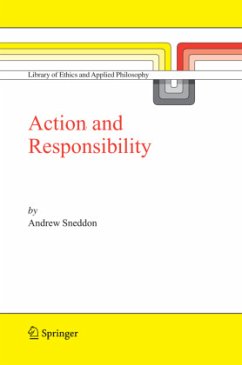This book is an exploration of what it takes for an event to count as an action. I first became interested in this topic nearly a decade ago while working on a different topic. I kept coming across philosophers making claims about the nature of action that seemed false or at least dubious to me. As a consequence I turned to the philosophy of action directly, to get to the heart of the matter. I have wrestled with this territory ever since. I hope that, with this book, I have finally earned the intuitions that put me at odds with the philosophers I was originally reading. This book develops ideas in Part Two of my doctoral dissertation, which I wrote at Queen's University in Kingston, Ontario, Canada. I loved being at Queen's, for both professional and personal reasons. My thanks go to the Social Sciences and Humanities Research Council of Canada for financial support as a doctoral candidate. Steve Leighton and Ronald de Sousa were readers for my dissertation. They provided some early and invaluable challenges to the ideas developed here. My deepest debt of gratitude is owed to David Bakhurst, my supervisor. I learned a lot from David; this book would not be the same without his help.
From the reviews: "Studies in the philosophy of action have predominantly aimed to provide theories of how the action is explained or produced. ... Sneddon aims to undermine this approach by separating out two fundamental questions that he argues should be distinguished in formulating theories of action. ... The clear and methodical way the book is set out ensures that a reader unfamiliar with this philosophical territory can easily engage with the text and its main arguments ... . This is well-constructed, thoroughly argued addition ... ." (Natalie F. Banner, Metapsychology Online Reviews, September, 2007)









